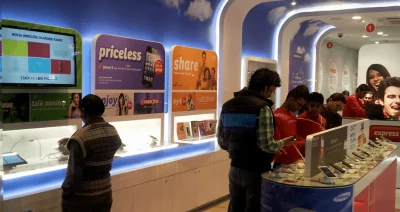The Supreme Court of India (SCI) has declined to stay a Telecom Disputes Settlement and Appellate Tribunal (TDSAT) order allowing operators to offer third generation (3G) services in circles in which they didn't have the required spectrum. After the judgement, the telecom operators can continue providing 3G roaming facility to mobile phone subscribers beyond their allotted zones through pacts with other service providers.

The apex court's decision follows a petition by the Department of Telecommunications (DoT) challenging the TDSAT order. All transactions would, however, be subject to the court’s final decision, the order stated. In 2011, the DoT had banned 3G intra-circle roaming. But operators decided to offer 3G services through roaming agreements in circles where they didn't have 2,100-MHz spectrum.
The judgement has brought relief to Airtel, Vodafone and Idea Cellular, which faced a penalty of Rs 1,200 crore for entering into pacts with each other to offer 3G services in regions where they did not win spectrum in the 2010 auction.
Airtel had won 3G spectrum in 13 out of 22 telecom service areas for Rs 12,295.46 crore; Vodafone in 9 for Rs 11,617.86 crore and Idea Cellular in 11 circles for Rs 5,768.59 crore. DoT had issued notices to Airtel, Vodafone and Idea on December 23, 2011 asking them to stop 3G ICR within 24 hours but the order was challenged by them.
DoT had imposed a cumulative penalty of Rs 1,200 crore on three operators — Bharti Airtel, Vodafone India and Idea Cellular — for providing 3G services outside their licensed telecom zones.
Now, Bharti, Vodafone and Idea can offer pan-India 3G services to customers across circles, despite the fact that these don’t have the requisite 2,100-MHz spectrum in all circles.















